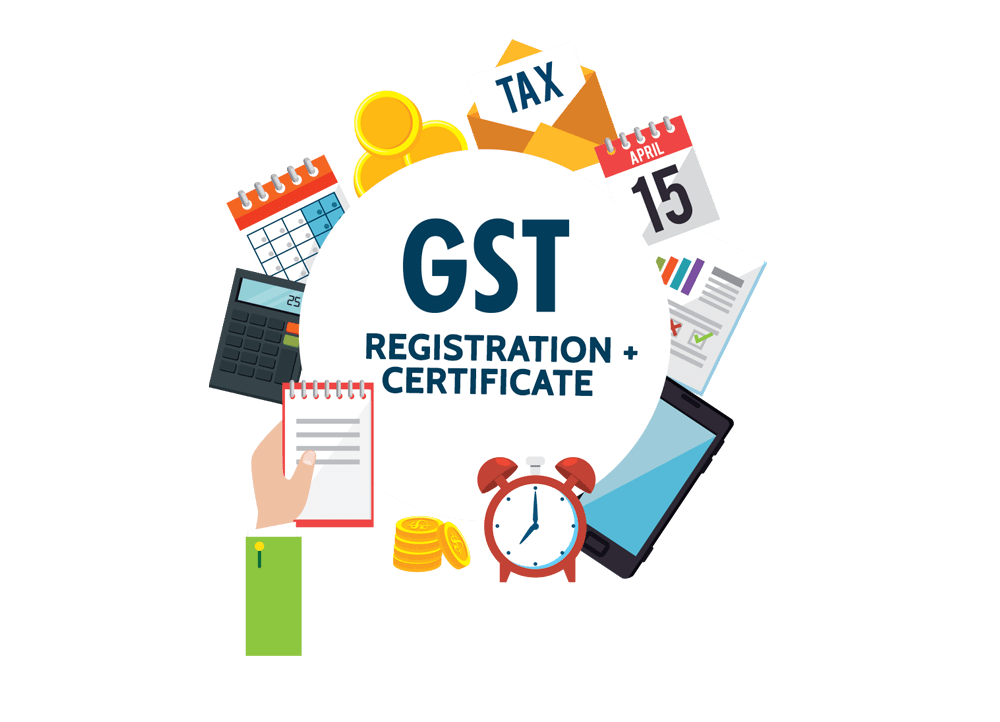Why Singapore GST Registration is Crucial for Your Startup
The Ultimate Overview to Simplifying the GST Enrollment Refine and Requirements for Local Business Owners

Understanding GST Fundamentals
To comprehend the fundamentals of the Goods and Provider Tax (GST) system, local business owners must first understand its underlying implications and principles. GST is a value-added tax obligation levied on most goods and services for residential consumption. It intends to enhance the taxation procedure by changing several indirect tax obligations enforced by the state and central federal governments. Under the GST program, services are called for to accumulate and sign up tax in behalf of the federal government, ensuring openness and compliance.
Among the crucial concepts of GST is input tax obligation credit history, which allows companies to claim credit for taxes paid on their purchases. This system protects against the plunging result of taxes and advertises efficiency in the tax system. In addition, GST is a destination-based tax, indicating that the tax is levied at the point of intake rather than the point of origin. This makes certain reasonable distribution of tax income amongst states based on where the solutions or goods are consumed. Understanding these basic principles is vital for local business proprietors to browse the intricacies of the GST system and make sure compliance with the regulation.
Qualification Requirements for Registration
Having actually developed a foundational understanding of GST concepts, local business proprietors must now fulfill particular eligibility requirements to wage the enrollment procedure. In India, entities participated in the supply of goods or services with an annual accumulation turnover going beyond Rs. 40 lakhs (Rs. 10 lakhs for special category states) are needed to sign up for GST. In addition, certain services such as those involved in inter-state supply of items, informal taxable individuals, and those required to pay tax under the reverse fee system need to register for GST irrespective of their turnover. Organizations that were signed up under the previous tax regimen (VAT, solution tax, etc) are additionally mandated to register under GST. Agricultural businesses that just provide create out of main production are excluded from GST registration. It is vital for entrepreneur to carefully analyze their qualification other based upon these requirements to ensure compliance with the legislation and stay clear of any kind of fines for non-compliance.
Documents Needed for GST Registration

Simplified Registration Refine Steps
Complying with the collection and confirmation of the requisite records, the enrollment process for GST can be navigated with a series of simplified steps created to promote efficient compliance for small company owners. Upon successful verification, an Application Recommendation Number (ARN) is released, showing the conclusion of the GST enrollment procedure. By following these simplified actions, tiny business owners can properly sign up for GST and ensure conformity with tax obligation regulations.
Tips for Ensuring Conformity
To maintain regulatory adherence and functional honesty, attentive oversight and positive procedures are critical in ensuring compliance with GST requirements for local business proprietors. Little organization proprietors have to remain updated with GST regulations, submitting due dates, and any changes in tax obligation prices to stay clear of charges and maintain an excellent standing with tax obligation authorities. One vital suggestion for conformity is to keep accurate and comprehensive documents of all deals, including billings, receipts, and expenditures related to GST. Regularly integrating monetary documents with GST returns can assist in determining and fixing any type of discrepancies promptly. Furthermore, conducting regular inner audits or seeking professional aid can guarantee that the organization is complying with all GST regulations correctly. It is likewise crucial for little organization owners to spend in GST-compliant accounting software program that can streamline the tax declaring procedure and minimize errors. Attending GST awareness workshops or training programs can improve understanding and compliance with GST policies, eventually profiting the organization in the lengthy run.
Verdict
Finally, local business owners must understand the essentials of GST, fulfill the eligibility criteria, collect essential papers, and comply with the streamlined enrollment process steps to ensure conformity. By streamlining the GST enrollment process and needs, local business owners can avoid fines and operate their companies smoothly within the lawful framework - Singapore GST Registration. It is critical for tiny company owners to remain informed and certified with GST guidelines to maintain an effective company operation
Small organization owners looking for GST registration need to ensure they gather and send the required records to finish the enrollment procedure successfully. The files needed for GST navigate to this site enrollment generally include evidence of service registration or unification, PAN (Irreversible Account Number) card of the service identification, entity and address evidence of the promoters/partners/directors, pictures, address proof of the place of organization, bank account statements or the original source terminated cheques, and authorization types. Participating in GST awareness workshops or training programs can improve understanding and conformity with GST guidelines, ultimately benefiting the organization in the long run.
By simplifying the GST registration procedure and needs, small service proprietors can avoid charges and run their organizations smoothly within the legal framework. It is critical for small company owners to remain informed and certified with GST guidelines to keep a successful business operation.